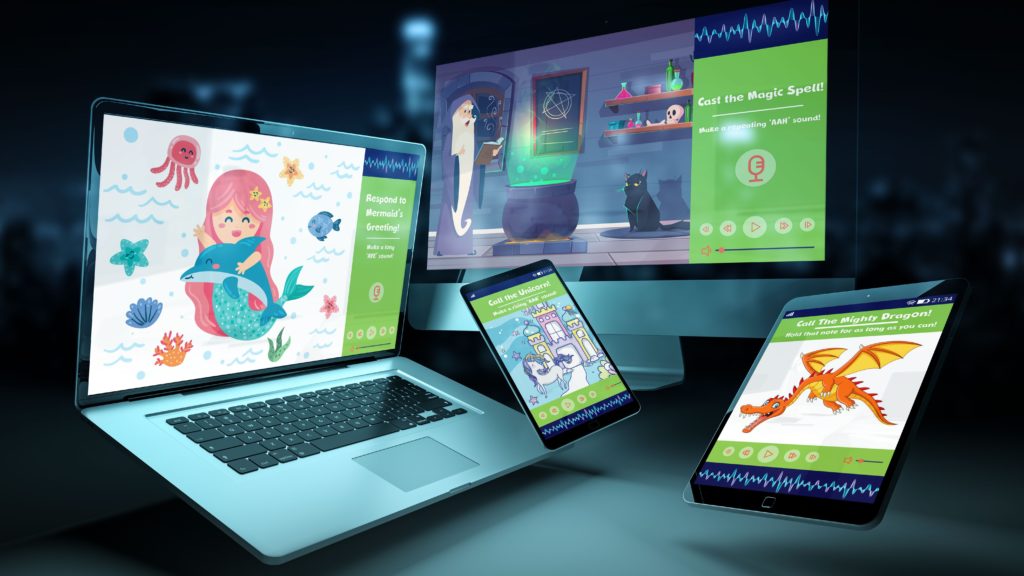The CHOC Research Institute plans to launch a pilot study on a pediatric speech therapy application that senior undergraduate students at UC Irvine’s School of Information and Computer Science (ICS) developed this past academic year.
CHOC sponsored the students’ work under the supervision of Professor Hadar Ziv, an associate professor in the Informatics Department at the Donald School of Information and Computer Science, and Dr. Brian Cohn, Ph.D., co-founder of Adventure Biofeedback and a former student of CHOC Chief Scientific Officer Dr. Terence Sanger.

The app, Amplify, is designed to make speech therapy more engaging, convenient, and interactive for both clinicians and patients by utilizing an adventure game. Amplify hosts a comprehensive library of interactive, audible adventure exercises to improve speech skills that are embedded in the storyline. Amplify is designed for children with cerebral palsy and other mental and emotional disabilities. The app enables parents, caregivers, and clinicians to watch and document the progress of improvement in speech.
The UCI students, all ICS majors, designed exercises for established voice therapies and designed the analytical voice data collection on the pitch, volume, and clarity of pronunciation. The students who worked on the project were Jennifer Kwon, Sharifa Jesmin, Eduardo Magdaleno, Michael Collins, and Brian Cantell. Students recently gave a demo of the app on a video call with Ziv, Cohn, and Christopher Laine, co-founder of Adventure Biofeedback, and a team of managers at the CHOC Research Institute.

“I’m impressed with what they developed,” Cohn said. “These students worked with us virtually during COVID, which is also impressive.”
Said Laine: “This project stands out as excellent. It takes the burden of motivating patients off the shoulders of the clinicians.”
Around 8 percent of U.S. kids ages 3-17 were diagnosed with a communications disorder in 2012, according to the students’ presentation. One-half of these children received speech-language therapy.
Tools like apps have an important role in pediatric patient care, given their availability, scalability, and access – and especially as telehealth continues to explode. The most effective apps are ones that can be customized to each pediatric patient and fit with their personal care/treatment goals and needs. Amplify has all the digital pieces needed for success, its designers say.
Dr. Sanger said the app has another benefit.
“Members of underserved populations, particularly those of low socioeconomic standing, are less likely to receive speech-language pathology services,” said Dr. Sanger, a professor of electrical engineering and computer science at the UCI School of Engineering, and vice dean of research, pediatrics at UCI.
“Pediatric patients deserve the opportunity to experience success whether it is through expanding research, improving auditory processing, or correcting sound errors,” Dr. Sanger added. “Technology development in speech and language services to families unable to afford therapy is important. Children with special health care needs are often at a disadvantage when it comes to accessing services.”
CHOC supports health equity and promotes culturally effective care, and recognizes that health disparities pose a threat to children from marginalized populations. For these reasons, closing gaps in health and health outcomes is important.
Research Institute officials believe the student project will help CHOC reach more families.
The design and prototypes that this student group produced were thoughtful and sophisticated, Dr. Sanger said.




